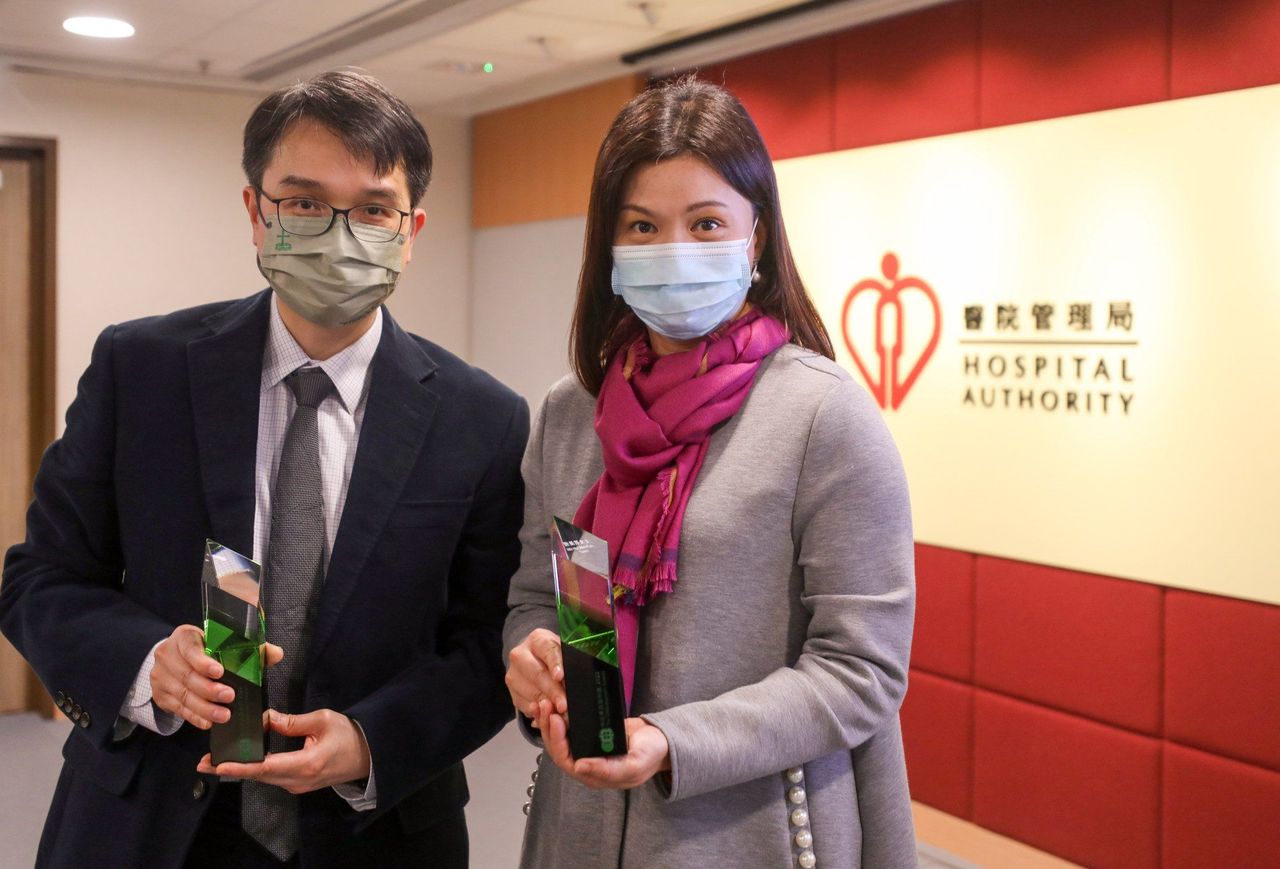Patient relations officer, doctor receive awards from ombudsman for managing complaints during city’s most brutal period of infections.
Tami Hui Mei-fun remembers the day she picked up the phone and listened to an angry caller complaining that she could not make a video call to her mother, a patient at Caritas Medical Centre.
The woman was angry with the nurses, saying she wanted to see if her mother was eating and sleeping well. Her outbursts were upsetting the ward staff.
That was in February last year, as Hong Kong’s deadly fifth wave of Covid-19 infections was surging and all hospital visits had been suspended.
Hui, a patient relations officer at the hospital, spoke to the woman and soon discovered the reason for her distress – her father had died from Covid-19 two months earlier and she was desperate to know how her mother was faring.
“There were reasons for her shouting and making seemingly unreasonable demands. She simply could not bear to lose her mother too,” Hui said.
Besides caring for the sick, health workers at Hong Kong hospitals also had to comfort patients’ family members, as the public system became overwhelmed.
Hui, who has worked at Caritas Medical Centre for more than 15 years, and Dr Ng Kwok-leung, clinical coordinator for patient relations and engagement at United Christian Hospital, won prizes from the ombudsman at the end of last year for handling complaints during the crisis.
The independent government watchdog awards prizes every year to public departments and civil servants to recognise their dedication in handling complaints.
Hui and Ng, whose ages were not provided by the Hospital Authority but who were both identified as long-standing members of staff, said the key to dealing with often emotionally charged complaints from upset family members lay in breaking through their anger to understand their concerns.
Ng, a paediatrician who began handling complaints in 2002, recalled an occasion when the daughter of an elderly Covid-19 patient who had been discharged called to demand medical follow-up services at their home.
 Dr Ng Kwok-leung (left) and Tami Hui.
Dr Ng Kwok-leung (left) and Tami Hui.
The patient was referred to an elderly day care service, which helped his rehabilitation while taking some of the burden off his daughter’s shoulders.
The city’s fifth wave of infections early last year saw daily cases rising to tens of thousands, and peaking at close to 80,000 in March.
Hospitals were unable to cope and in February, some patients were left waiting outdoors in the cold, in corridors and even bathrooms until a bed could be found for them.
Tim Pang Hung-cheong, a veteran patients’ rights advocate, said the extended suspension of hospital visits damaged the mental health of some people who were in hospital for a long time and those in hospices.
“Lots of negative emotions were bottled up as they wondered if their family had abandoned them,” he said.
Hui recalled that anxious family members who could not visit patients in hospital kept calling to find out how they were.
Most calmed down once they were given an update on the patient’s status and reassured that their family members were being cared for.
“Many had no wish to complain, they were just extremely worried about the state of their loved ones,” she said.















